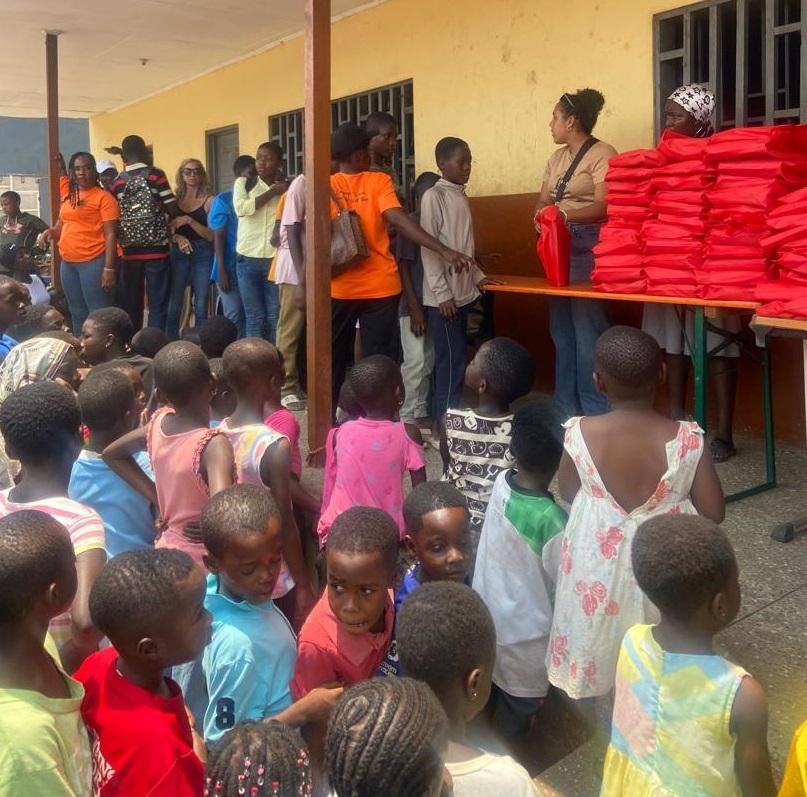News
AfWOD urges tackling socio-economic barriers fuelling HIV spread

Ms Precious Hamidu, the Executive Director of the Alliance for Women Opportunities and Development (AfWOD), has called on the nation to tackle the socio-economic factors contributing to the spread of HIV and AIDS in the country.
She said existing gender inequality, poverty, and limited HIV and AIDS education and inaccessible healthcare services in parts of the country remained key barriers that the nation needed to overcome to bring the spread of the diseases to the barest minimum.
“We must therefore empower women and girls, ensuring that they have the requisite knowledge and resources to protect themselves,” she stated in an interview with the Ghana News Agency (GNA) in Sunyani to commemorate the 2024 celebration of the World AIDS Day.
She highlighted the importance of continuous efforts to fight HIV and AIDS in the country by supporting people living with the virus to access medication and intensifying the public campaign against the disease for people to protect themselves from infections.
Each year, on December 1, the world commemorates World AIDS Day, instituted by the World Health Organisation (WHO) where people around the globe unite to show support for people living with HIV and to remember those who have died from AIDS-related illnesses.
Ms Hamidu indicated that the country had made significant progress in the fight against HIV and AIDS, saying reports from the Ghana AIDS Commission showed that the nation had witnessed a decline in new HIV infections, with an estimated 19,000 new cases in 2022, compared to 21,000 in 2021.
“Despite this progress, the fight against HIV/AIDS is far from over,” she stated, saying the current statistic from the Ghana Health Services revealed that approximately 350,000 people were living with HIV in the country, with women accounting for 60 per cent.
Ms Hamidu indicated that the prevalence rate among adults aged 15-49 was estimated at 1.7 per cent, underscoring the need for targeted interventions.
AfWOD remains committed to working with local communities, government agencies, and international partners to enhance HIV prevention and treatment programmes, she stated, saying her organisation also focused on reducing stigma and discrimination, which remain significant challenges for those living with HIV.
“Stigma and discrimination continue to hinder our efforts and we must therefore create an environment where everyone feels safe to seek testing and treatment without fear of judgment or social exclusion.” -GNA
News
Assembly man shot dead in Aboabo

A wave of grief has swept through the Amansie West District over the fatal shooting of the Assembly Member for Aboabo, Samuel Danquah, during a violent clash between residents and armed military personnel at a mining site in Mpatuam on Tuesday.
Samuel Danquah was killed when military men opened fire on angry residents in Mpatuam. Two other people were also shot and are in hospital.
The trouble started on Monday, September 8, when local people said security guards from Asanko Mines killed a miner.
On Tuesday, hundreds of young people blocked the roads to the mining site, demanding justice for the dead man.
Danquah went to the scene to talk to the protesters and calm them down. But when soldiers arrived, they started shooting. Danquah was hit by a bullet and died at the hospital.
“Danquah came to help calm the situation,” said Kwame Sakyi, an Assembly Member for Mpatuam, who saw what happened. “He believed in talking through problems.”
After the shooting, the angry crowd set fire to vehicles and equipment belonging to the mining company. The whole area is now very tensed.
“The situation is out of hand,” Sakyi told reporters. “The youth are devastated. They feel unheard, unsafe, and betrayed. We’ve lost a respected leader and the people are demanding answers,” he added.
This is not the first time such troubles between mining companies and local communities in Ghana has been recorded. Many people living near mines say the companies make money from their land but give nothing back to them.
They complained that the mining is destroying their farms and water sources while they remain poor. When they protest, security forces often use force against them.
Sakyi is asking the government to investigate what happened and find out why soldiers shot at unarmed people. He wants to know why a respected community leader was killed while trying to make peace.
“While mining brings economic opportunities, communities continue to feel left out,” he explained, adding that, “We need better ways for people to talk about their problems without violence.”
Community leaders and civil society groups are also calling on the government to step in and prevent more violence in mining areas.
People who knew Danquah said he was always trying to help solve problems peacefully. His family and friends are shocked that he was killed while trying to prevent a commotion.
The funeral arrangements are being made while the community mourns a leader who died trying to serve his people.
Many opinion leaders believe the incident shows how dangerous the situation has become in Ghana’s mining areas, where conflicts between companies and communities are getting worse instead of better.
From Kingsley Hope, Kumasi
Join our WhatsApp Channel now!
https://whatsapp.com/channel/0029VbBElzjInlqHhl1aTU27
News
Street Academy distributes learning material to over 200 pupils

The Street Academy in Accra last weekend distributed exercise books, pens and other learning material to over 200 pupils from the Academy and neigbouring children within the vicinity.
The gesture was an annual activity of the Academy to commemorate its ‘Back-to-School’ programme aimed at equipping children with essential school supplies as they prepare for the new academic year.
Held at the precincts of the Academy, it brought smiles to the faces of the children most of whom were drawn from the streets.
Each beneficiary was presented with items such as notebooks, exercise books, pens, pencils, erasers, sharpeners, rulers, mathematical sets, and other school essentials, ensuring they were well-prepared to begin their studies with confidence.
Speaking to the media, the Founder and Director of the Street Academy, Ataa Lartey, expressed joy and appreciation over the support the Academy continues to enjoy from institutions and individuals.
According to him, some of these donations cannot be possible if individuals, corporate and religious bodies fail to support.
Ataa Lartey extended special gratitude to a Director of the Academy and a philanthropist, Nii Boye Abbey, who donated the items to the Academy for onward distribution to the needy children.
Mr Abbey presented the stationery worth GH¢68,000 to the Academy as part of his 61st birthday celebration for onward distribution to the needy children.
“We are grateful to Mr Abbey especially and other donors. His presentation went far to support the Academy’s ‘Back to School’ project that supports the children’s return to school.”
He thanked the media for the extensive publicity given to the Academy’s programmes over the years and expressed hope that this support would grow even stronger in the years ahead.
“We believe that as you sow into the lives of these children, God will continue to bless and reward you abundantly,” he said.
The Street Academy is a sports and culture organisation that draws children from the street and support them with education and teach others with skills in various sectors including sports to make an earning for themselves.
It is known for its commitment to providing education and skills training for street children and underprivileged youth and it continues to serve as a beacon of hope in the community, transforming lives through education, sports, and arts.
By Spectator Reporter
Join our WhatsApp Channel now!
https://whatsapp.com/channel/0029VbBElzjInlqHhl1aTU27












